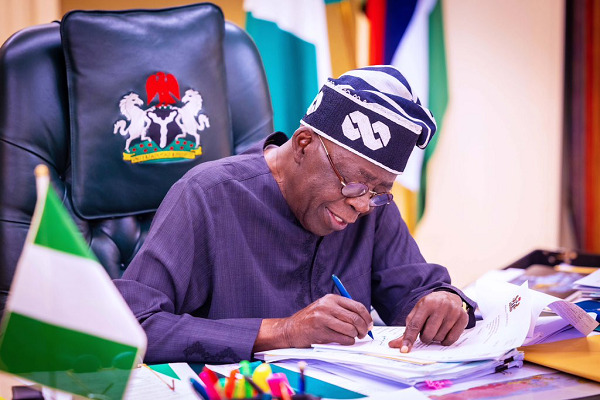In the ever-evolving landscape of national budgets, the 2023 Supplementary Budget of Nigeria has sparked significant public interest and debate. With a total allocation of N2.176 trillion, this budget has raised eyebrows due to some key allocations that demand critical scrutiny. Notably, the State House’s budget of N28 billion, the N4 billion set aside for the renovation of the Residential Quarters for President Bola Tinubu, and the N1.5 billion earmarked for the purchase of official vehicles for the Office of the First Lady have ignited discussions, especially in light of the country’s economic challenges.
Understanding the Context
To comprehend the significance of these allocations within the 2023 Supplementary Budget, we must first consider the broader context in which they are situated. Nigeria, like many other countries, faces a complex set of economic challenges that necessitate prudent fiscal management.
The global economic landscape has been reshaped by the COVID-19 pandemic and subsequent crises, making it crucial for nations to allocate resources wisely. In this scenario, Nigeria has been striving to navigate the challenges of fluctuating oil prices, inflation, and the need for infrastructure development.
The State House Allocation
The State House is the official residence of the President of Nigeria and the seat of the country’s executive branch. Its budget allocation of N28 billion is substantial, raising questions about the specific areas within the State House that will benefit from this allocation.
While the State House serves as a symbol of the nation’s leadership, it is important for this budget allocation to be transparent and accountable to the Nigerian public. The allocation’s details should be available for scrutiny to ensure that it serves the interests of the nation effectively.
Renovation of Presidential Quarters
The allocation of N4 billion for the renovation of the Residential Quarters for President Bola Tinubu has been met with mixed reactions. The renovation of presidential quarters is not uncommon, as maintaining the residence of the head of state is a matter of national importance.
However, the specifics of this allocation, such as the scope of the renovation and its cost-effectiveness, should be subject to public scrutiny. It is crucial for the government to ensure that such expenditures are carried out efficiently and that the funds are utilized in a manner that best serves the nation’s interests.
Purchase of Official Vehicles for the Office of the First Lady
Allocating N1.5 billion to purchase official vehicles for the Office of the First Lady has raised questions about the necessity and transparency of such expenditures. While the First Lady plays a significant role in representing the nation, the allocation’s details and the choice of vehicles should be made transparent to the public.
This allocation should be justified in terms of how it contributes to the effective functioning of the First Lady’s office and benefits the nation. The public has a right to know how their tax contributions are used to support such allocations.
Fiscal Responsibility and Accountability
The debate surrounding these allocations in the 2023 Supplementary Budget highlights the importance of fiscal responsibility and accountability in government spending. The Nigerian Senate’s approval of these allocations underscores the need for stringent oversight and transparency in the allocation and utilization of public funds.
As Nigeria faces economic challenges, it is essential for the government to prioritize expenditures that promote national development and the well-being of its citizens. The public should be well-informed about budget allocations, and the government should be prepared to answer questions and provide explanations when allocations appear to be excessive or lack transparency.
The 2023 Supplementary Budget of Nigeria has come under scrutiny due to certain key allocations, including the budget for the State House, the renovation of the Residential Quarters for President Bola Tinubu, and the purchase of official vehicles for the Office of the First Lady. While these allocations may have valid justifications, the government must ensure transparency, accountability, and efficient utilization of funds to serve the best interests of the nation.
The allocation of public resources is a matter of great importance, especially in times of economic challenges. Nigerians have the right to expect that their tax contributions are being used judiciously and in a manner that promotes national development. As the country grapples with economic uncertainties, the need for responsible budgeting and fiscal accountability cannot be overstated.


